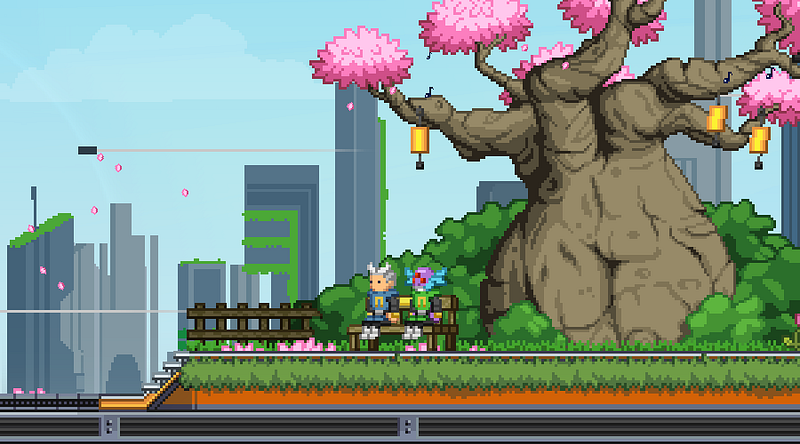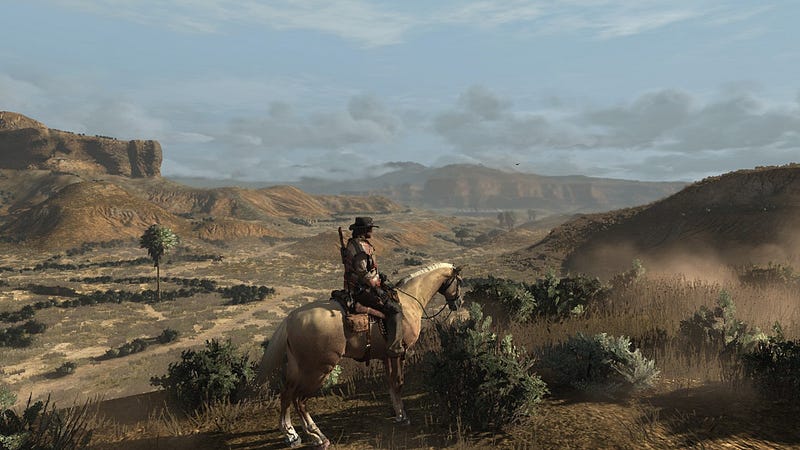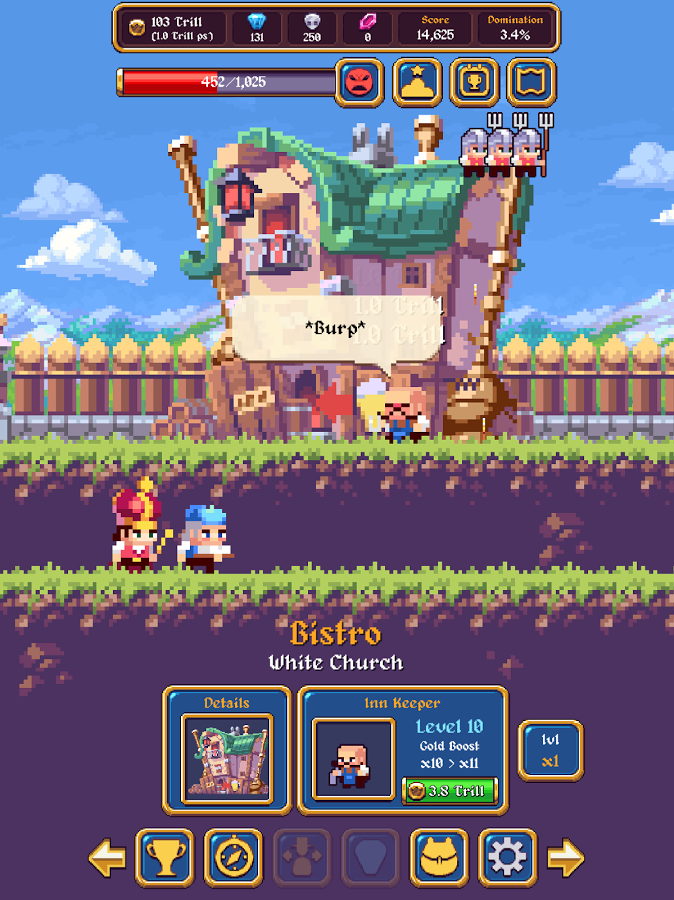Things I Played in 2017
A short resume of what a played this year. None of the games were actually released in 2017.

2017 was the year where the grotesque caricatures that somehow got into power last year proved themselves to be as incompetent and mediocre and everybody expected them to be, thus, opening space for even worse caricatures to emerge next year.
Meanwhile, 2017 was a year I spent picking of the pieces of being a casualty of the indiepocalypse, trying to figure out what to do after my lifetime career plans where made financially unfeasible due to peculiarities of the search algorithms and the overlords who rule over them.
This is what I played this year; note that none of those games where released in 2017.
Starbound (Chucklefish Games, PC, 2016)

This was I year I mostly struggled with the purposelessness of unemployment; in the sense that without the lack of a singular function you can wrap your routine around, you then search for any coherent loop of meaning to oil the engines of sanity. That made me pull toward games with confortable loops and self-defined challenge, rather then the fiero infused experiences I once treasured.
Enter Starbound, a lo-fi megagame emerged from the primordial soup of hundreds of Minecraft clones, whose main hook is you being able to do anything. Some core goals emerge just as you star playing (find better materials to become stronger, upgrade your upgrade stations so you can upgrade even more), but after that, it becomes this many-pointed star that you can guide in the direction you prefer. Be it exploring, hunting, or building. Or in my case, gardening and cooking.
(there are over 150 possible cookable dishes in this game and I made them all)
There is a core story, with thematic dungeons that reflect each of its delightful cornucopia of JRPG Space Opera species and creatures; people on internet criticize the fact you can’t disassemble those dungeons with your omnitool (with one, subtly brilliant exception). It must be the same people that criticize the fact that in Saints Row 4, a game in which your main mode of transportation is superjumping and gliding, has fully drivable cars with different weights and handlings. You know those people.
Etrian Odyssey 3 (Atlus, Nintendo DS, 2010)

This is the sort of game a couple of years ago I could not see me playing, even worse enjoying. I did not like mechanical hermeticism, sadistically uncaring difficulty, and second-rate moe artwork. Guess age can do things to a person.
EO3 is a first person dungeon crawler almost entirely unencumbered by the burdens of japanese role-playing tradition, such as a heavy-handed gating narrative. Its adorable hopscotch-like movement through a grid maze echo a forgotten age of inscrutable computer role-playing games, and its blank slate characters and intensively tactical combat and progression (with class ability trees derived builds that feel immensely satisfactory to play when properly unlocked) are what gives the game its flair and soul.
It feels less like an epic quest and more like a daily occupation; dive in, gain items, open one or another shortcut, and go back to the main city to sell your bounty and lick your wounds. Grinding becomes a habit, that becomes a reliable routine.
It is hard, maddeningly so, in the way that party wipes are a common occurrence even later in the game. Bosses are towering walls of impossibility, playing dirty almost to dare you to break their patterns. This give some battles a poker-like rush, as you try to anticipate enemies moves with your own, and the randomness inherent to turn-based combat make gambles make or break an entire run.
Red Dead Redemption (Rockstar Games, Playstation 3, 2009)

Rockstar Games sandboxes are often the only game a large subset of people play; due to their almost inexhaustible capacity to give meaning through chaos, and generate (almost always psychotic) little narratives that satiate people need for meaning and explosions.
It is a surprise then, to find Red Dead Redemption to be so dull. Not in the classic sense, of course, but in the reflective sense of all good audiovisual media. There is shooting, of course, copious loads of it, but it is so uninspired and dislocated from the rest of the game that is feels mostly like a Wii minigame shooting gallery.
Most of the game is spent on horseback, gliding through a variety of arid landscapes with a combination of presses and pulls of a single button; the game has fast travel, but I do believe it was made intentionally difficult to activate, as to acclimate you with the game real intentions. Sometimes you’ll dismount to collect herbs; sometimes you’ll play parlor games your grandma would find old-timey.
The writing is stellar though; free from the mean-spirited late-Simpsons level of pop culture parody that fuels most of the GTA series, the tale of John Marston is filled with much-needed historical deconstruction of the late north-american mythology, with writing that is introspective and as incisive and violent as its action wants to be, and even flirts with magical realism in unexpected places.
It also never fucking ends; I would love to comment in it’s notorious ending (which was obviously spoiled to me long ago — such is the plight of playing everything late), but I simply haven’t reached it yet. Much like the immense lands you are constantly rushing through, the game itself is enormous, filled with quiet emptiness.
God Hand (Clover Studios, Playstation 2, 2006)

There is a dumb webcomic somewhere that says that taking your shirt off always makes things more intense, be it making out, having and argument or taking a dump. God Hand is a videogame that I could only play without my shirt.
It’s whole gameplay is centered on pressing a button, your central combo, sometimes alternating to other moves, sometimes, flicking a directional to dodge around an enemy. But is that central mashing, in some aspects masturbatory, in others meditative, that is the central hook. Your body will glisten with sweat and your right arm will be sore, something that is bizarrely paralled in the games exquisite corpse of a storyline.
It brings in itself together concepts of other Shinji Mikami games; the restricted movement of the original Resident Evil, but with the perspective and polish of the much loved fourth one, together with the dodging and frantic, rhythmic mashing of the underrated P.N.0.3. An ersatz masterpiece, a sort of high-art mechanically-impeccable kusoge that is singular in the history of games.
Secret World: Legends (Funcom, PC, 2017)

I could not have played it at a worse time; where a couple of years ago conspiracy theories were an amusing contemporary mythology with a subversive tinge of cultural restlessness, it is now a reflection of the resilience of human moral cowardice, widespread by the overpowered snake-oil-salesmans of contemporaneity.
Secret World, then, feels quaint in its tone (at best it reads like 90’s Vertigo, and at its worse, filler X-Files); playing as an agent of the Illuminatti, whose modus operandi being the same as of a right-wing think-tank, strode that peculiar line between fantasy and a comment section.
Its an MMO, so any artifice of secrecy is dead in the water; infinitely respawning enemies, a weightless and limp combat system, which there is way too much, fellow player with ridiculous outfits, a quest structure almost custom build to smother drama and urgency. What helps it float, though, is it impeccable writing, bizarre, unfriendly puzzles, and detail-filled landscapes.
It is almost laudable to build an MMO, the most loud and minimum-combat-denominator of genres, around niche and subtle ideas. Perhaps that contradiction is another obtuse mystery to solve.
Idle Empires (Grumpy Rhino Games, Mobile, 2017)

I have seasonal obsessions with pointless, evil, mobile games; I played countless hours of Tiny Tower to an obsessive level, a daily ritual that acquire an almost religious dynamic to me. But due my unfortunate habit of having my phones stolen, it is also deeply cemented in my conscious mind that those will be fruitless endeavors.
This years obsession was Idle Empires, a pointless, evil, clicker; there are far better things I played in this niche this year under the guise of “research” (Paperclips, Galaxia, Spaceplan), but the sheer brutality of IE makes me return with pavlovian glee.
Its core resource, the hate the population feels for your player character, is constantly increasing, in ways that that you can only marginally stop. When it peaks, you have to start it all again, with some minor improvements helping you get some centimeters further.
It is a design that is perversely compelling, and if you have the moral resolve to play without spending money, they can become much different games than if you do (these games, might I add, are all always the same shit- mobile app stores are a good example of the resultant interaction between a unregulated market and creative products); the strongest simile I can think is Michael Brough 2012 game Vesper.5, a title that you could only take a step each day (I played it in its entirety — good fun); how something powerful can come from the cheap exploitation of your primal drives.
Pid (Might & Delight, PC, 2012)

A relic from what seems some other time; a relatively simple, doubtly unpolished, overly long, and mechanically confused yet surprisingly conservative little platformer that, somehow, has charm in such abundance that those flaws can be grokked as part of the experience. Had it being released this year, it would probably be squashed under titty games and asset flippery in the Steam death machine.
Has my favourite game moment of this year, too.
Kirby’s Mass Attack (Hal Laboratory, Nintendo DS, 2011)

This is the best game I played this year that has the word “Mass” in the title.
Mass Effect 2 (Bioware, PC, 2010)

Back when I had a blog (back when people blogged), I made this mammoth text about Mass Effect One, and how it was a paen to the futility of the AAA game promise, one of perfect fidelity to realism, infinite pathways to follow, and billions of hours of content. Because, despite what the game industry wants people to think, games are man-made, and have those same limitations.
AAA games are rarely entertainment for their buyers, but more like a validation of an investment; this year saw the release of another Mass Effect, Andromeda, whose spectacularly botched technical execution (fostered by studio meddling, poor management and unreasonable deadlines) betrayed that promise, continuing a thread that is slowly unraveling the construct of the Big Game; after all, the world most popular game in the world right now is a buggy mod with an unreasonable price tag.
Mass Effect 2, then; it oozes money from its pores. From the inventively human-positioned camera angles and expertly voice-acted dialogue for even it’s most banal scenes. It removes the repetitive and paltry side missions from it’s predecessor for incredibly varied one-shot adventures, probably iterated to death by hundreds of testers and developers. But pay no mind, there is still a lot of padding bullshit in the shape of the world’s most pointless minigame.
It’s setting and storyline is the polar opposite of my favorite Bioware game, Dragon Age, in which a clichéd scenario gains life with coherent worldbuilding and passionate writing. Here, an original and exciting premise is drowned by dull characters and endless setpiecing. The few threads of choices rarely have repercussions, the stomach-clenching kind, the fuck-up-a-writers-flowchart kind; the walling between exploring and talking and shooting rarely cause possibility for surprises, though I thought its bone-headed combat to be rather entrancing.
The final mission: the perfectly expressions of it’s conflict between it’s nature as a product, a thumbs-up giving mechanism, and the willingness of telling a compelling tale. One of the few characters I cared about died, and I though it was the machinery of the game giving me an unexpected gut punch whew it knew it would hurt. As I found out later, I just assigned him to a wrong function in the last mission. It is possible for everyone to live and be happy. Or your money-back is guarantee.
Two things: that people think this is an RPG is mindboggling, and I am pretty sure I will never play Mass Effect 3 in my life.
Kentucky Route Zero — Episodes I and II (Cardboard Computer, PC, 2013)


Good lord is as good as they say it is.
Persona 4 (Atlus, Playstation 2, 2008)


Persona 4 is a videogame about sexless teenagers who spend most of their time talking about cooking. Sometimes, they venture into a representation of the collective unconscious where they battle metaphors for contemporary anomie with figures from a multiplicity pantheons, in a covert argument for the inherent moral superiorness of religious syncretism.
In a week that for me also had devastating heartbreak and my work computer almost exploding, I lost all my save files of the game. This happened in a point in the story in which a innocent little girl who never harmed anyone was held captive in a nightmare world. In my headcanon, she shall forever be there, as there is no way I will play those interminable starting hours again.
And that was 2017.
Read more about:
BlogsAbout the Author
You May Also Like









